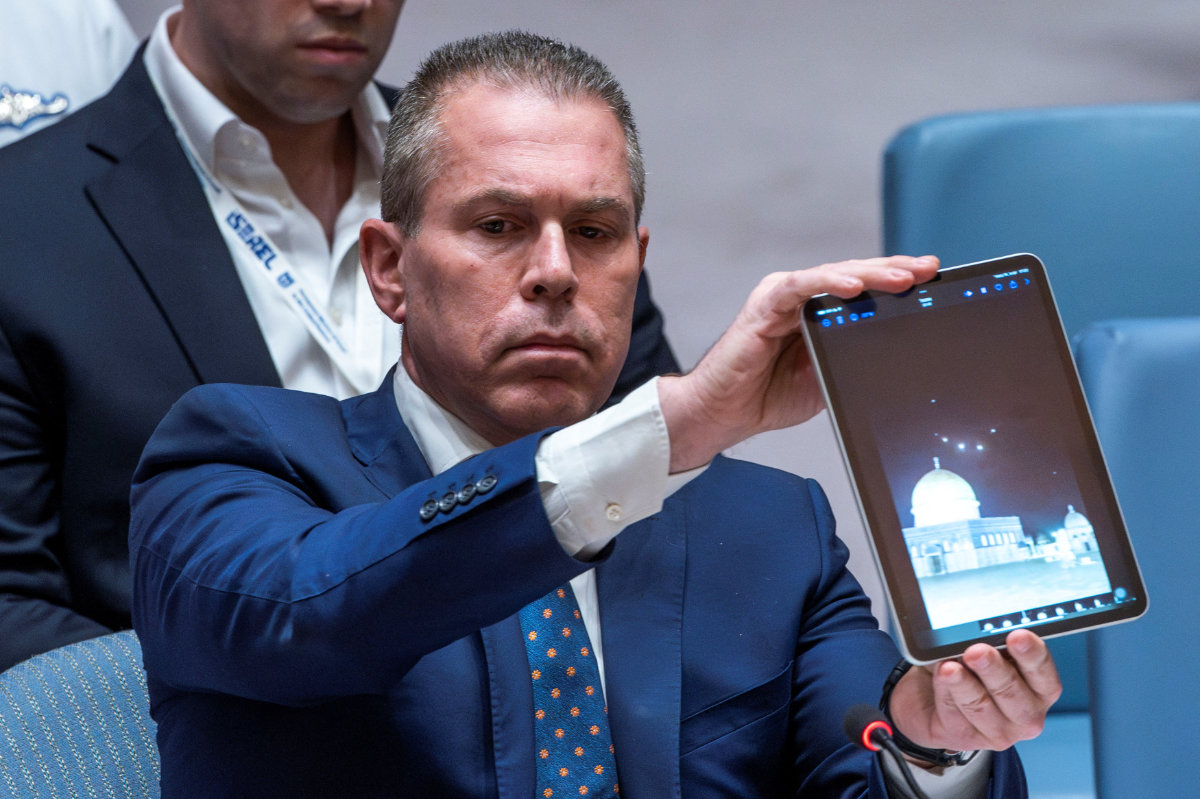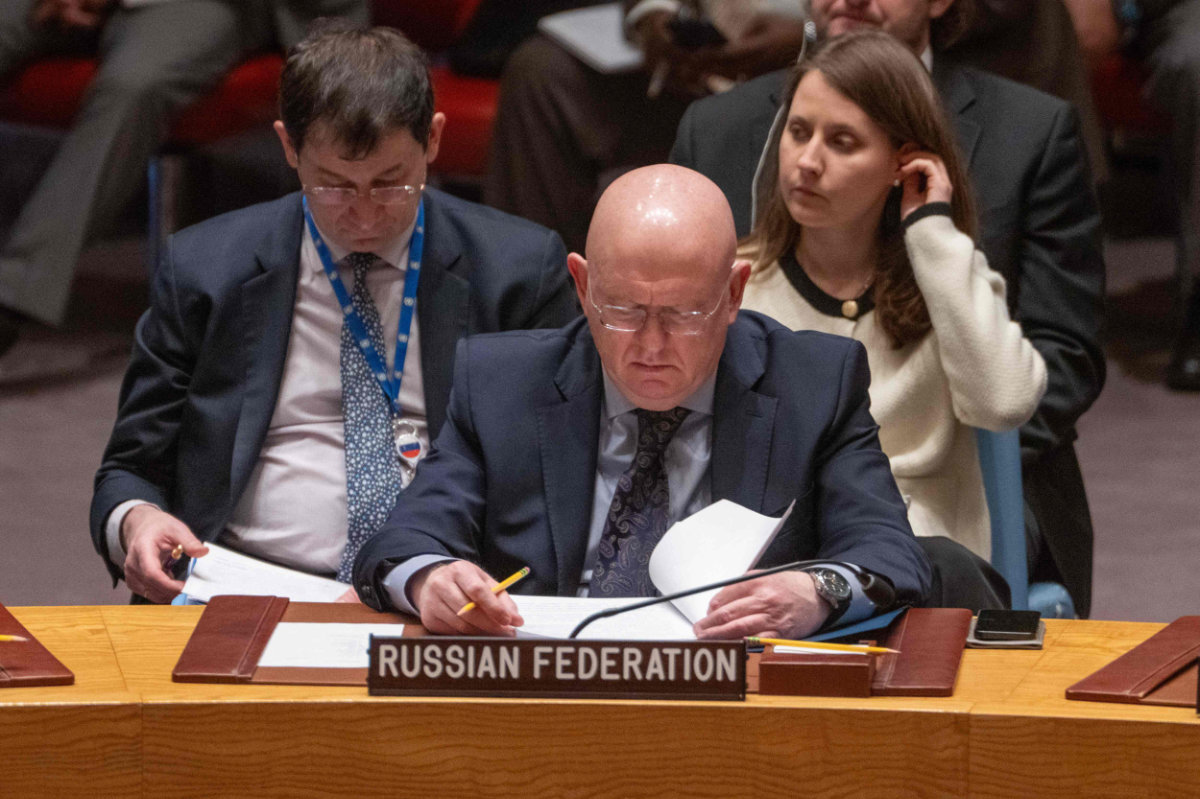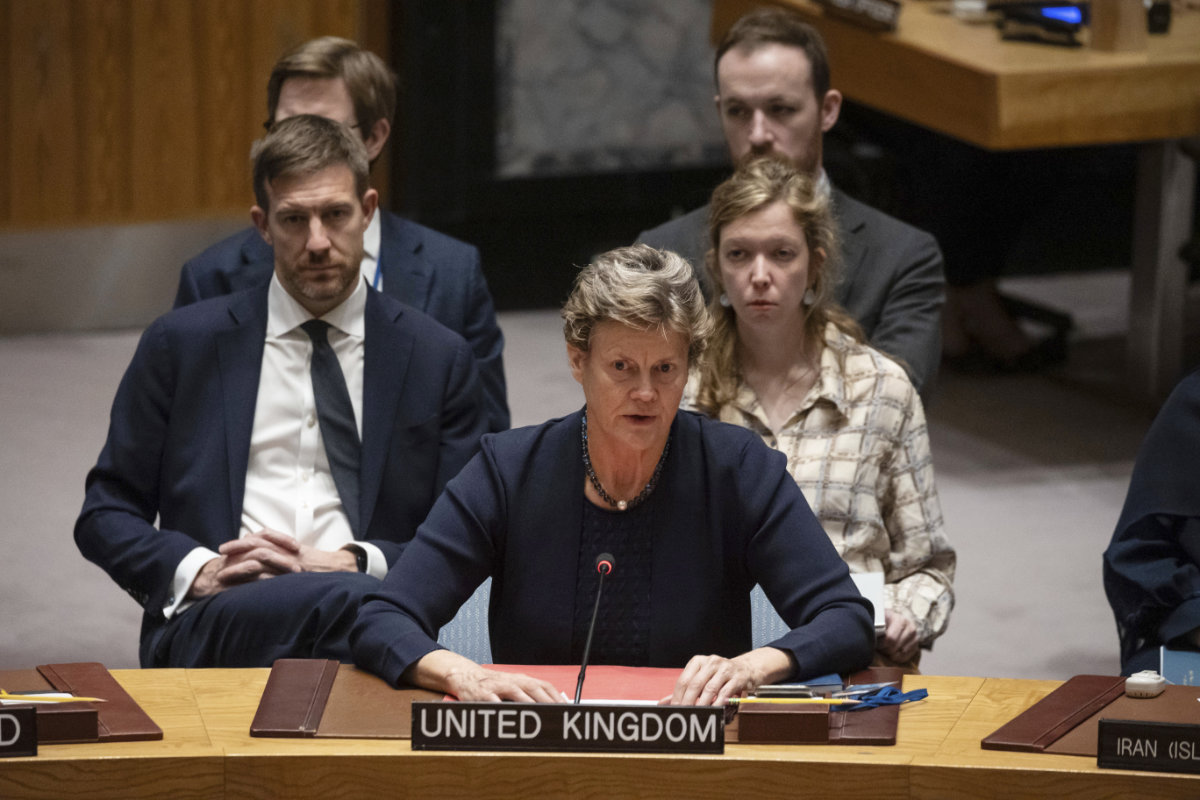NEW YORK: Iran has on Sunday said that it has no intention of engaging militarily with the US in the region, but if the latter initiates a military operation against it, its citizens, or security interests “Iran will use its inherent right to respond proportionately.”
Iran’s permanent representative to the UN Amir Saeid Iravani told a meeting of the UN Security council that his country’s Saturday attack on Israel was "precise, only targeted military objectives and was carried out carefully to minimize the potential for escalation and prevents civilian harm."
Iran on Saturday launched dozens of drones and missiles at Israel in retaliation against an Israeli strike on the Iranian consulate in Damascus, which killed seven revolutionary guards, including two generals. Iran had warned that Israel would be “punished” for the strike, which took place on April 1.
The emergency Security Council meeting was requested by Israel’s permanent representative to the UN Gilad Erdan who called council members to “unequivocally condemn Iran (and) immediately act to designate the IRGC as a terrorist organization.”
Iran had said that Saturday’s attack was in line with Article 51 of the UN Charter, which invokes the “inherent right of individual or collective self-defense if an armed attack occurs against a Member of the United Nations, until the Security Council has taken measures necessary to maintain international peace and security.”
US ambassador Robert Wood warned that “if Iran or its proxies take actions against the United States or further action against Israel, Iran will be held responsible. "
Wood condemned in the strongest terms "the unprecedented attack on Israel by Iran and its militant proxies and partners.” Iran's "reckless actions" not only posed a threat to populations in Israel, but also to other UN member states in the region, including Jordan and Iraq, he added.
"Security Council has an obligation to not let Iran actions go unanswered,” said the US diplomat, adding that "for far too long, Iran has flagrantly violated its international legal obligations through the actions of its IRGC, by arming Hezbollah, by arming, facilitating and enabling Houthi attacks on Saudi Arabia and the UAE and more recently, merchant and commercial shipping in the Red Sea.”
Wood also accused Iran of being complicit in the October 7 attack on Israel, having provided “significant funding and training for Hamas.”
He said the US will explore “additional measures to hold Iran accountable at the UN,” and called on the Security Council to unequivocally condemn Iran's actions and call for it “and its partners and proxies to cease their attacks. "
Israel’s Gilad Erdan compared Iran’s supreme leader Ayatollah Ali Khamenei to Hitler. He said that in its “plot to impose a global Shiite hegemony through its proxies, Iran has even attacked Saudi Arabia, the Aramco oil field in the UAE and anyone else they view as an obstacle.”
"The only option is to condemn Iran and utilize every means necessary to make them pay a heavy price for their horrible crimes,” Erdan told the council, as he warned that Tehran is “barreling towards nuclear capabilities, has enriched uranium up to 60% purity, and its breakout time to produce nuclear weapons is now mere weeks away.
“Impose sanctions on Iran before it is too late," said Erdan.

Israel's UN Ambassador Gilad Erdan shows a video of the Iran missile attack during a meeting of the Security Council on Middle East security on April 14, 2024. (REUTERS)
The Israeli envoy added that "we are being fired upon from all fronts, from every border. We are surrounded by Iran's terror proxies. The war in Gaza extends far broader than Israel and Hamas. All of the terror groups attacking Israel are tentacles of the same Shia octopus, the Iranian octopus."
He warned that "while the Ayatollah regime thinks Israel is a frog in boiling water. They are wrong. This attack crossed every red line and Israel reserves the legal right to retaliate. We are a nation of lions. Following such a massive and direct attack on Israel, the entire world let alone Israel cannot settle for inaction."
Russia's Vasily Nebenzia accused the council of hypocrisy and double standard over its failure to convene in a similar fashion following Israel’s attack on the Iranian consulate in Damascus, or what he called the “now regular attacks by Israel against Syria and Lebanon.”
The Russian envoy warned that “if the council’s inaction on such matters will continue "then your appeals to restraint by all parties can become futile."

Russia's UN Ambassador Vassily Nebenzia accused the Security Council of hypocrisy and double standard for not convening in a similar fashion following Israel’s attack on the Iranian consulate in Damascus. (Getty Images/AFP)
China's deputy permanent representative Dai Bing noted Iran’s statement that its military action was in response to Israel's aggression against his diplomatic premises and “the matter can be deemed concluded."
Dai added that "if the flames of the Gaza conflict are allowed to continue raging, then the adverse spillover is set to spread still further, making the region, even more unstable. Countries and peoples in the Middle East, have no desire for nor can they afford a larger conflict or war."
Algeria's Deputy Permanent Representative Nacim Gaouaoui said recent developments cannot overrule the central question “which is the aggression on the Palestinian people in Gaza, and at the same time, it can never be used as a pretext or cover to launch a land attack against Rafah.
“Algeria calls again for ceasefire, and an end to Israel's heinous killing machine.”
Slovenia's Samuel Zbogar condemned the attacks on Israel in same way Slovenia condemned the attack on the Iranian consulate in Damascus earlier in April.
"The sequence of these events accelerates the spiral of violence, escalating into a broader conflict of unpredictable scope,” Zbogar said, as he urged all parties to “choose the path of dialogue and diplomacy, and refrain from further retaliations."
"Slovenia continues to believe that a ceasefire in Gaza would have a calming effect on tensions in the region. Every moment we delay the risk of a broader conflict increases in these chaotic times," added Zbogar.
Malta's UN ambassador Vanessa Frazier said the Middle East is experiencing “one of the bleakest and most volatile periods in modern history, which risks spiraling out of control if all sides do not take a step back.
"Focus should be on defusing tensions by advocating for an immediate and permanent cease fire to the war in Gaza, facilitate immediate and unconditional release of all hostages and ensure the delivery of sustained humanitarian aid throughout Gaza. All we are witnessing, our steps in the opposite direction," lamented Frazier.
Sierra Leone’s UN ambassador Michael Imran Kanu warned that “the escalating tension in the Middle East is dangerous and unprecedented, with the potential to destabilize not only the entire region, but impact global peace and security.”
UK’s permanent representative to the UN Barbara Woodward condemned Iran’s attack on Israel and accused Tehran of being intent on sowing chaos in the region.

Britain's UN Ambassador Barbara Woodward, addressing the Security Council meeting, accused Iran of being intent on sowing chaos in the Mideast region. (AP)
“As we have demonstrated, the United Kingdom will continue to stand up for Israel's security, and that of all our regional partners, including Jordan and Iraq.”
France’s deputy permanent representative Nathalie Broadhurst said Iran crossed a new threshold in its destabilizing action and is risking a military escalation for which “it would be responsible.”
Broadhurst called upon Tehran and its allies “to at long last, and without further delay cease their destabilizing activities throughout the region.”






























